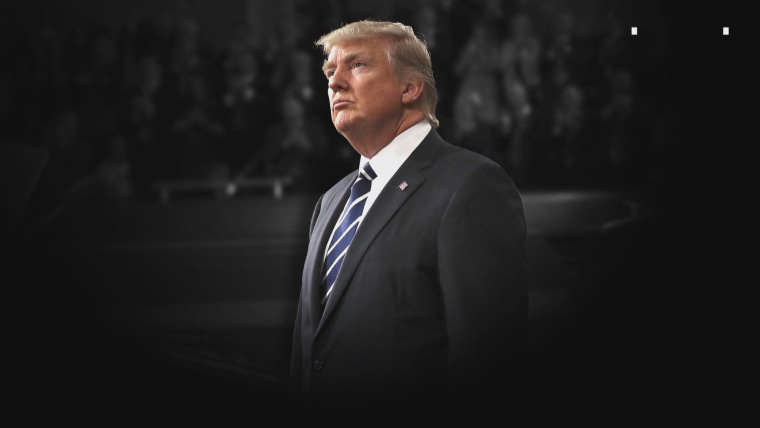There's a standard criticism of any State of the Union address: they tend to offer laundry lists of presidential priorities, which every chief executive asks Congress to advance. Some presidents have been more effective than others in presenting these laundry lists, but ultimately, the problem seems largely unavoidable.
That is, in theory. One of the oddities of Donald Trump's State of the Union was the absence of a laundry list -- because the Republican president doesn't seem to have much of an agenda. NBC News' analysis touched on an important detail:
Save for his vow to keep open the U.S. detention center at Guantanamo Bay, Cuba, Trump's address was devoid of new proposals.
I think that's exactly right, but it's worth pausing to appreciate how bizarre the truth is. No prisoner has been sent to the detention facility at Guantanamo Bay since March 2008 -- nearly a full decade ago. The prison population has shrunk from 780 detainees to 41.
And yet, Trump's "new" proposal was signing a directive last night to leave the status quo in place, indefinitely. The president is keeping open a prison that wasn't closing anyway.
And while that was a disappointing policy announcement in last night's national address, the larger point is that it wasn't accompanied by other policy announcements.
Sure, Trump made passing references to other areas -- he's concerned about opioids; he supports veterans; he thinks immigrants are dangerous -- but merely mentioning substantive issues does not an agenda make.
Vox's Ezra Klein noted last night, "The Trump administration told us not to expect much new policy, but I'm still surprised by the total absence of new policy. They've been in office one year, they're polling below 40%, and the GOP Congress may be finished by the next [State of the Union address]. How are they already so low on ideas?"
That need not be a rhetorical question.
Part of the problem is that the White House may have ideas, but Trump and his team realize those proposals are unpopular and are therefore unlikely to be touted in an address to the nation. It's also possible that the president -- or the people who write his speeches -- is already shifting this year's focus to the 2018 midterm elections, confident that the period of real legislating is effectively over, at least until next year.
But I tend to think the core issue here is that the Republican Party, to borrow House Speaker Paul Ryan's (R-Wis.) term from last spring, is still struggling to become a "governing party." GOP officials seem aware that the nation has challenges that need to be met, but they don't yet know how, why, and whether to meet those challenges with substantive solutions.
Complicating matters, many of those problems would require aggressive responses from government -- and as far as much of today's Republican Party is concerned, government solutions must necessarily be seen as the wrong solutions.
And so, Trump spoke at length about very little. He and his party cut taxes and slashed regulations, which means they can rest on their laurels and celebrate a backward-looking State of the Union. From the GOP's perspective, what more is there to do?
Ramesh Ponnuru added this morning that the president's speech was "unique in its near-total refusal to lay out any ideas for the future." From the White House's perspective, that's not necessarily a criticism.
